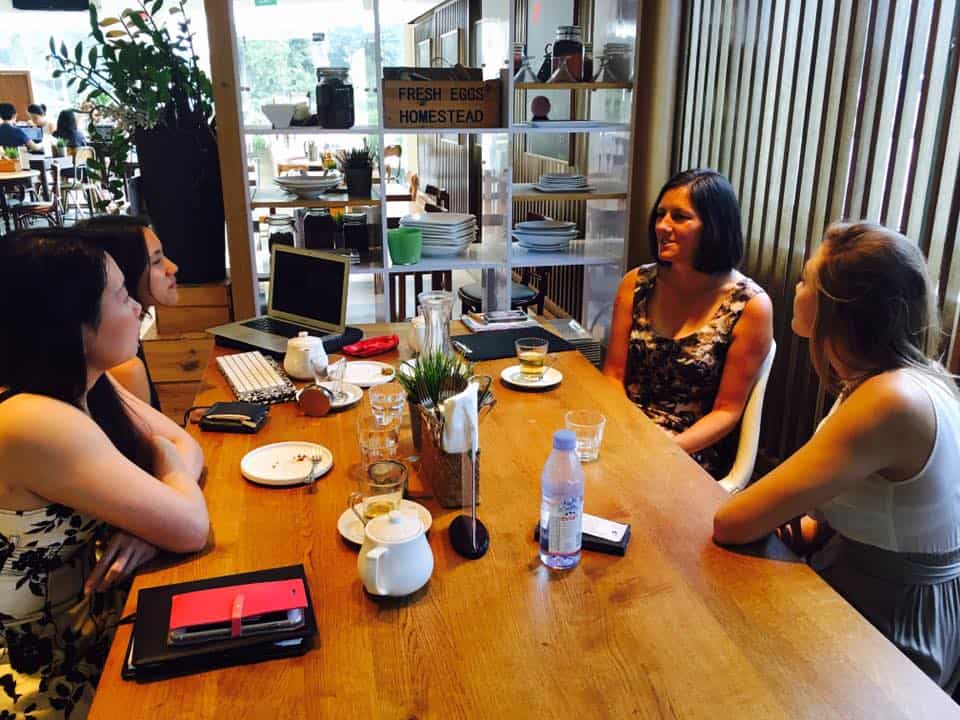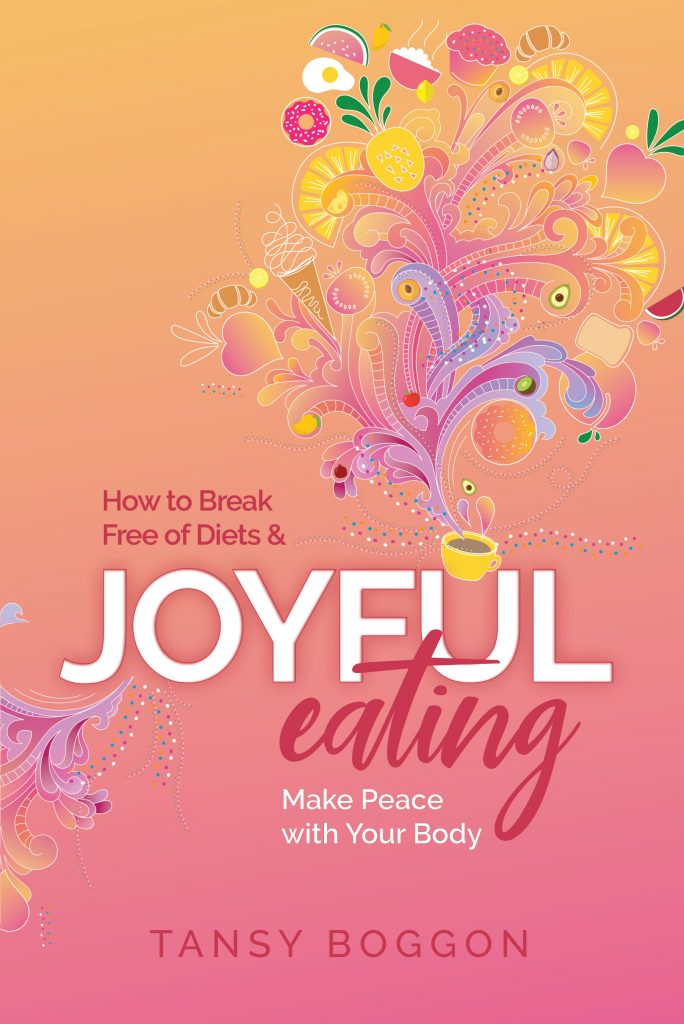Imagine a world where we could enjoy time out with friends and family without justifying our food choices or feeling we must compensate for it through exercise or at our next meal. Why does our eating cause so much guilt and shame?
What is diet culture?
Diet culture is founded on the belief that our eating predetermines our weight, shape and size, which are considered measures of our health and self-worth.
Although diet culture promotes weight loss, it isn’t just about ‘being on a diet’. It encompasses any thinking that our eating or other lifestyle behaviours control our body’s health or appearance.
Despite the declaration that ‘it’s not a diet’, many lifestyle programs, wellness diets, elimination protocols, clean eating and detoxes are diet culture in disguise.
Diet culture tells us how to look and perpetuates diet talk. It dictates how we feel about our bodies and how we treat our bodies. It perpetuates a fear of gaining weight and a perception that weight loss is good.
What is diet mentality?
Diet mentality is the thinking associated with diet culture. It is any thinking that there is a right way to eat or belief that there are food rules to follow for good health or to meet an accepted ideal of body weight, shape or size.
Diet mentality can be present without a conscious desire to lose weight, as food rules and attaching our self-worth to our eating can persist without the pursuit of weight loss.
Why is diet culture harmful?
Diet culture can be a significant source of stress and anxiety, promoting guilt and shame about our food choices, eating behaviour and bodies.
It perpetuates fatphobia, weight bias, weight stigma, preoccupation with food and body, and eating disorders. It starves us not only of food but can steal our money, time, health and happiness.
Diet culture and eating disorders
Diet culture plays a significant role in the development of eating disorders and can hinder recovery as diet talk, body dissatisfaction and controlling food intake are rampant.
To prevent eating disorders and create a culture where recovery is possible, we need to identify how diet culture shows up in our lives and how we perpetuate it, whether consciously or unconsciously.

Imagine a world free of diet culture
At a chocolate workshop I ran in Singapore, a participant from India asked why Western people feel guilt and shame when they eat delicious treats. In India, she explained, ‘Sweet treats are an important part of our culture that we gift to others if they have given birth, are getting married or have any other reason to celebrate, and we eat these treats without guilt’.
I’m not saying Indians are immune to diet culture, but this exchange got me thinking.
Embracing food for celebration and connection
Her question was thought-provoking.
Celebrating with food is ingrained in all cultures around the world.
We celebrate with a birthday cake. We provide gifts of chocolates for Valentine’s and Mother’s Day.
Food is an integral part of most of our social gatherings.
We get together over a BBQ, a glass of wine, a coffee or a meal.
Why do we feel immense guilt and shame about our eating
Why do we feel guilt and shame in enjoying these celebratory foods?
My initial thought was that we have such an ingrained diet culture, which has demonised the very foods that our celebrations and social connections are centred around. Thus creating internal friction as we want to join in yet simultaneously feel we shouldn’t indulge in these foods.
So, I responded to the Indian lady’s question by proposing that our diet culture was a possible culprit.
She then asked, ‘Why is dieting such a large part of your culture?’
Hmmm…
Before I could form an answer, a wave of emotion came over me. I realised how much dieting has taken over our lives in Western culture: how it robs us of the joy of eating and celebrating through sharing food.
Imagine a culture free of diet mentality
For a moment, I could only imagine a life where we could enjoy treats given to us by someone who loves us.
Imagine if we could celebrate birth, graduation, marriage, or the life of a loved one passed and enjoy the delicious delicacies without thinking about our waistline or whether the food is good or bad for us.
A life where we could enjoy time out with friends without justifying our food choices, explaining that we’ll ‘burn it off’ later or ensuring our next meal compensates for this ‘indulgence’.
Or imagine a life where we could focus on living life to the fullest, enjoying each moment, without constant concern and consideration of what we are eating and feeling our body isn’t good enough the way it is.
Imagine…
Joyful Eating: How to Break Free of Diets and Make Peace with Your Body
“… practical tools to help people release their sabotaging thoughts, enabling them to eat more intuitively and find joy in the moment.”
— Michelle Stanton, author of The Timeless World.
Are you ready to become a diet culture dropout?
If so, you’re in the right place.
As a nutritionist and past chronic dieter, I am on a mission to help others break free of diets and make peace with their bodies. In my role supporting people with eating disorders, I witness daily the considerable harm of diet culture.
Whether you’re a yo-yo dieter, a chronic dieter or struggle to stick to a diet, I’ve got you covered.
To start your journey to ditch diets for good, download ‘Debunk the Diet Myth’, a pivotal chapter in my book, Joyful Eating: How to Break Free of Diets and Make Peace with Your Body.
Ways you can challenge diet culture
- Stop comparing yourself to unrealistic images of beauty and health portrayed in the media.
- Eat to nourish your body and for enjoyment, connection and celebration, not to control your health or weight.
- Accept your body, acknowledging that all bodies are different and appearance is not a good representation of health or happiness.
- Engage in conversations with friends and family about the dangers of diet culture and support businesses and organisations that promote body positivity.
- Challenge diet talk by questioning others’ beliefs and sharing your own experiences and thoughts on the dangers of diet culture.
- Seek professional support if you are struggling with your relationship with food, accepting your body or an eating disorder.
Media plays a significant role in promoting diet culture.
Social media, magazines and TV bombard us with images and messages telling us we need to lose weight and that we are not good enough unless we are thin or look like the images presented to us.
Although diet culture is harmful to people of all weights and sizes, it can significantly impact specific populations more than others, such as women, people of colour, athletes, LGBTQ+ people and people with disabilities.
Socioeconimcs, sociocultural, stigmatisation and discrimination play significant roles in body dissatisfaction and individuals’ relationship with food and body—with a bias against those in larger bodies and marginalised populations.
Further reading
If you’d like to read more to help you break free of diets and diet mentality, I’d recommend you read:



